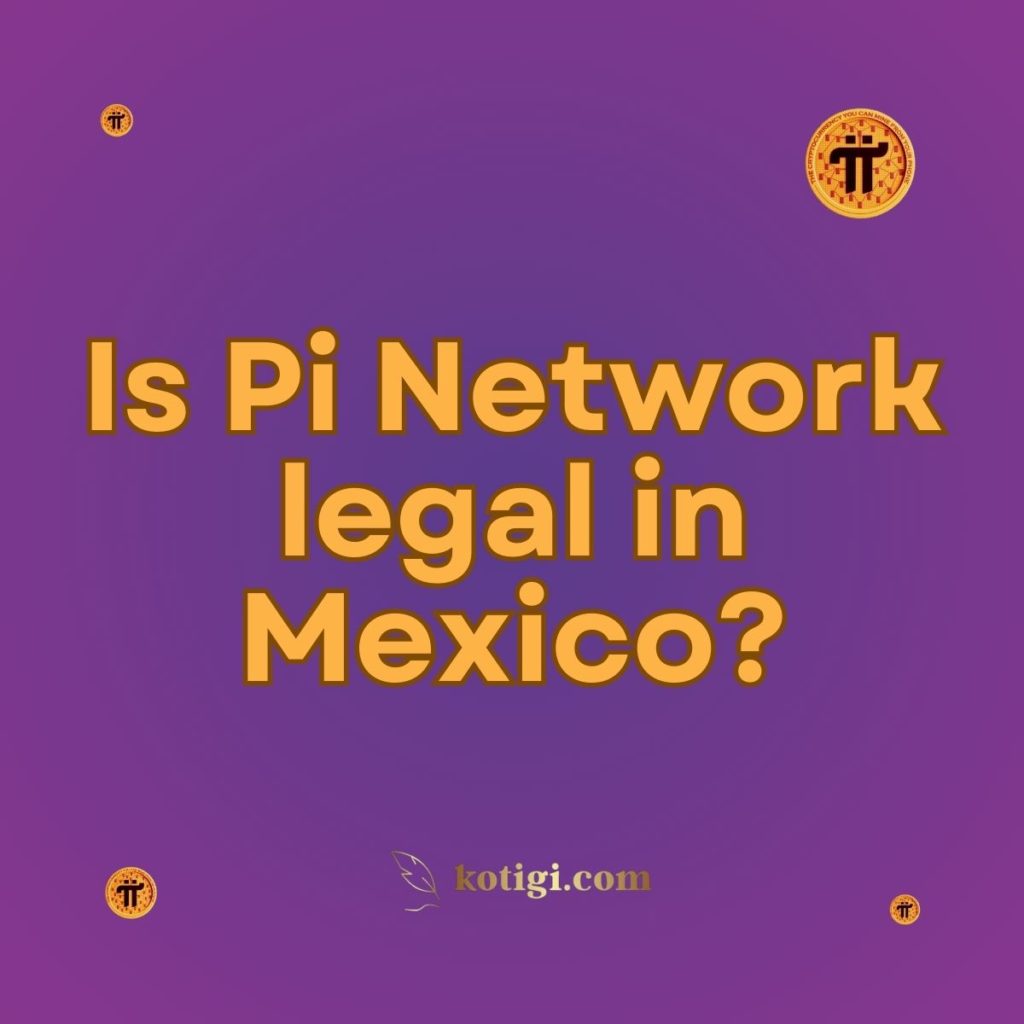
Is Pi Network legal in Mexico?
Pi Network is a cryptocurrency project that has gained significant global attention, including in Mexico. Understanding the legal status of Pi Network in Mexico is essential for users and potential investors. Below is an analysis of the current legal framework and considerations regarding Pi Network in Mexico.
1. Regulatory Status in Mexico
1.1 Cryptocurrency Regulations in Mexico:
Mexico has a developing regulatory framework for cryptocurrencies, governed primarily by the FinTech Law (Ley para Regular las Instituciones de Tecnología Financiera), enacted in 2018. The law provides a legal basis for digital assets and fintech companies operating in Mexico. Cryptocurrencies are not recognized as legal tender in Mexico but are classified as “virtual assets.” The Bank of Mexico (Banxico), the country’s central bank, along with the National Banking and Securities Commission (CNBV), oversees the regulation of virtual assets.
1.2 Pi Network’s Legal Standing:
As Pi Network is still in its development phase and its tokens are not yet listed on major exchanges, it does not currently fall under significant regulatory scrutiny in Mexico. However, if Pi Network tokens gain monetary value or become tradable in the future, they will need to comply with Mexico’s regulations for virtual assets.
2. Oversight by Mexican Financial Regulators
2.1 Classification and Regulation of Cryptocurrencies:
The CNBV and Banxico are responsible for overseeing the use of virtual assets in Mexico. If Pi Network’s tokens are eventually classified as virtual assets or financial instruments, the project would be subject to Mexico’s FinTech Law. This could include requirements for registration, transparency in operations, and compliance with financial regulations.
2.2 Initial Coin Offerings (ICOs) and Token Sales:
If Pi Network decides to conduct an Initial Coin Offering (ICO) or a similar fundraising event in Mexico, it would be subject to regulations under the FinTech Law. This includes ensuring transparency, adequate disclosure of information to potential investors, and adherence to Mexican laws governing financial products and services.
3. Anti-Money Laundering (AML) and Counter-Terrorism Financing (CTF) Compliance
3.1 AML and KYC Obligations:
Mexico has stringent AML and CTF regulations in place, particularly after amendments to its laws in 2019. If Pi Network introduces features that involve financial transactions or the exchange of Pi tokens, it must comply with these regulations. This includes implementing Know Your Customer (KYC) procedures to verify user identities and reporting any suspicious activities to Mexican authorities.
3.2 Registration and Compliance Requirements:
If Pi Network or its related services in Mexico are deemed to operate as digital currency exchanges or financial service providers, they would need to register with the relevant authorities, such as the CNBV, and comply with AML and CTF obligations. Non-compliance could result in significant legal penalties and operational challenges.
4. Taxation and Consumer Protection in Mexico
4.1 Tax Responsibilities:
In Mexico, cryptocurrencies are subject to taxation, much like other financial assets. Any gains from the sale, trade, or exchange of Pi Network tokens would be subject to capital gains tax. Mexican users are required to report their cryptocurrency transactions to the Servicio de Administración Tributaria (SAT), Mexico’s tax authority, and pay any applicable taxes. The SAT provides guidelines on the taxation of virtual assets.
4.2 Consumer Protection Laws:
Pi Network must adhere to Mexican consumer protection laws, which are enforced by the Procuraduría Federal del Consumidor (PROFECO). These laws ensure that users are treated fairly, and that Pi Network provides clear, accurate information about the risks involved. Any misleading marketing practices or non-compliance with consumer protection regulations could lead to legal consequences in Mexico.
5. Cross-Border Considerations
Given that Mexico is part of various international agreements and regulations, Pi Network must consider cross-border legal implications if it operates or has users in multiple countries. Ensuring compliance with both Mexican and international regulations will be crucial for Pi Network’s legal standing in Mexico.
Conclusion
Pi Network is currently legal in Mexico, but its regulatory status will depend on how the project evolves, particularly if Pi tokens become tradable or hold monetary value. As Pi Network progresses, it must comply with Mexico’s FinTech Law, AML regulations, tax obligations, and consumer protection laws. Mexican users should stay informed about the legal landscape to ensure compliance and minimize potential legal risks.




